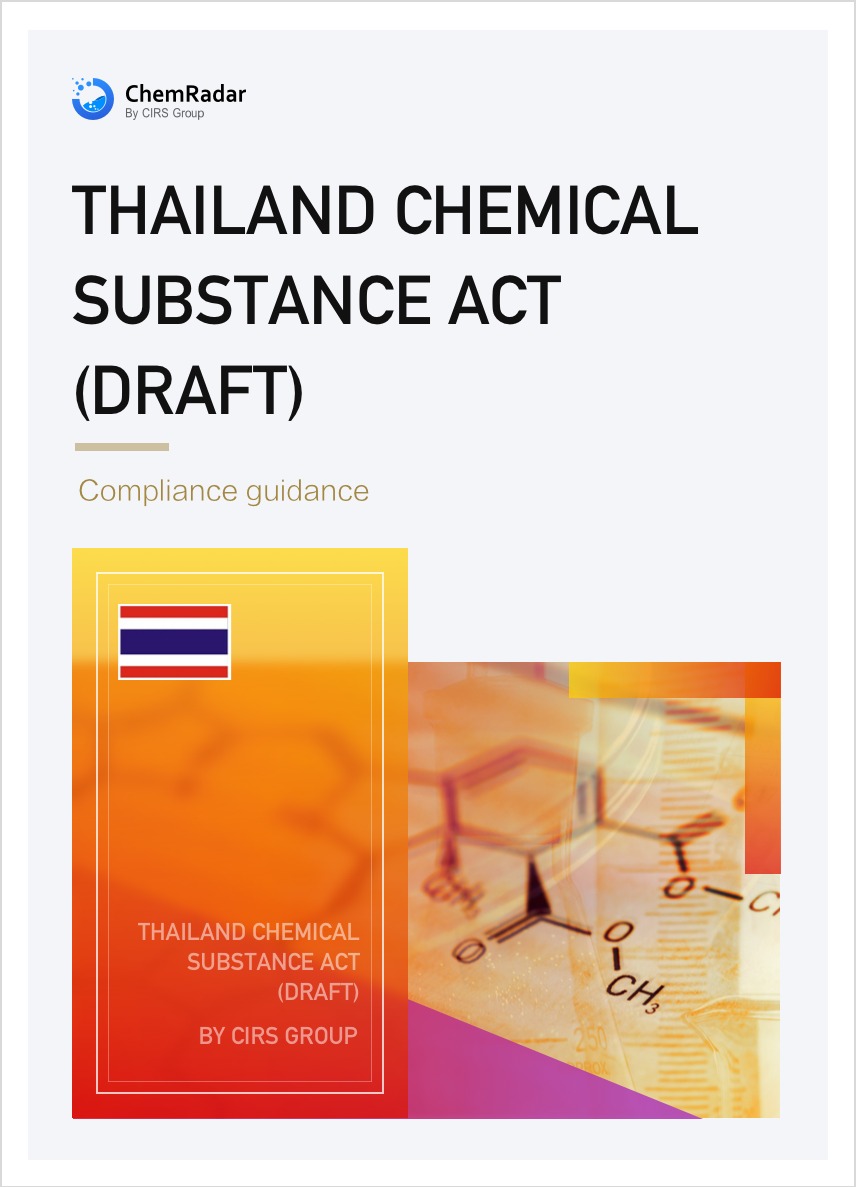2. The First Draft of Chemical Substance Act
The first draft of the Chemical Substance Act was unveiled in a notice on April 23, 2019. Three days later, it was openly discussed at a workshop organized by the FDA, where public feedback was solicited.
The new Act is composed of the following sections:
(1) Establish National Chemical Policy Committee, Chemical Assessment Committee, Chemical Management Committee, and National Chemical Agency, with clearly defined responsibilities for each department.
- National Chemical Policy Committee: The highest decision-making body, led by the Prime Minister or Deputy Prime Minister, is responsible for developing policies and strategies for chemical management. This body is also tasked with submitting an annual national chemical status report to the Cabinet.
- Chemical Assessment Committee (CAC): Comprised of representatives from relevant agencies and members with appropriate professional qualifications, this body is tasked with establishing standards for chemical registration, compiling an existing chemical inventory in Thailand, classifying chemicals and setting related standards, communicating chemical risk information to the public, and conducting chemical assessments.
- Specific Sector of Chemical Management Committee: In the sectors of agriculture, public health, industry, and others, this body defines the standards, methods, terms, and conditions for chemical management based on a chemical inventory list. It also determines the standards, procedures, terms, and conditions for issuing chemical permits and is responsible for public communication regarding chemical risks.
- National Chemical Agency: In the sectors of agriculture, public health, industry, and others, this agency defines the standards, methods, terms, and conditions for chemical management based on a chemical inventory list. It also determines the standards, procedures, terms, and conditions for issuing chemical permits and is responsible for public communication regarding chemical risks.
(2) The management of chemicals involves processes such as assessment, licensing, control, and monitoring. Chemicals are classified into three lists by committee based on health and environmental risk assessments.
- List 1: Low risk. Businesses must adhere to the standards, methods, timelines, and conditions specified in the regulations or notices issued by the CAC, the Specific Chemicals Committee, and/or the responsible minister.
- List 2: High risk. Businesses must secure permits adhering to specific regulations before engaging with chemicals listed in the inventory. These regulations are defined by various committees and ministers and are categorized based on the intended chemical use. List 2 is divided into three sub-lists based on the intended use of the chemicals.
List 2.1: For agricultural purposes, upon approval, it will be listed under list 2.1.
List 2.2: For public health purposes, upon approval, it will be listed under list 2.2.
List 2.3: For industrial and other purposes, upon approval, it will be listed under list 2.3.
- List 3: Prohibited chemicals. All activities related to the chemicals listed in this inventory are prohibited, including import, export, and use, among others. Exceptions may be made for chemicals used in research and development or those that cause unavoidable, less hazardous pollution.
(3) Promote and support measures for chemical management. The Chemical Information Center under the National Chemical Agency will be responsible for compiling and continuously updating the existing list of chemicals in Thailand, establishing a database of registered operators and chemicals, as well as databases related to chemical assessments and data on chemicals from various lists.
(4) Responsibilities and obligations, including civil and criminal liabilities, are clearly defined. The Act specify compensation and penalties for violations of chemical management provisions.
(5) The committee will assess and update Thailand's chemical inventory, including those under the HSA and lists from other agencies. The transitioning to a new classification system within 180 days post-law enactment, extendable to one year. Other transitional provisions are as follows:
- The notification or registration under HSA that are still in progress may be transferred to the new act.
- Permits and registration qualifications obtained under HSA will remain valid until their expiration.
- Regulations and notifications previously issued under HSA will continue to be valid until Chemical Substance Act are approved, unless they conflict with the provisions of the new regulations.
In addition to the aforementioned points, the new Act also introduces several other significant changes:
- The current classification system under the HSA divides chemicals into four hazard categories, whereas the Chemical Substance Act organizes them into three categories listed across three distinct lists.
- The regulatory scope now extends across the entire lifecycle of chemicals, covering everything from production to disposal, including the import, export, distribution, and recycling of substances, mixtures, and articles.
- The validity of licenses for chemicals in List 2 is limited to a maximum of six years, and companies with revoked licenses cannot apply for a new one for five years.
- Chemicals that are not included in the existing list of chemicals in Thailand are considered new chemicals, and companies must submit a request for assessment to the Chemical Evaluation Committee and provide the required information before engaging in related activities.
- The new Act establishes insurance and compensation mechanisms for damages caused by chemicals, with stricter penalties enforced.


